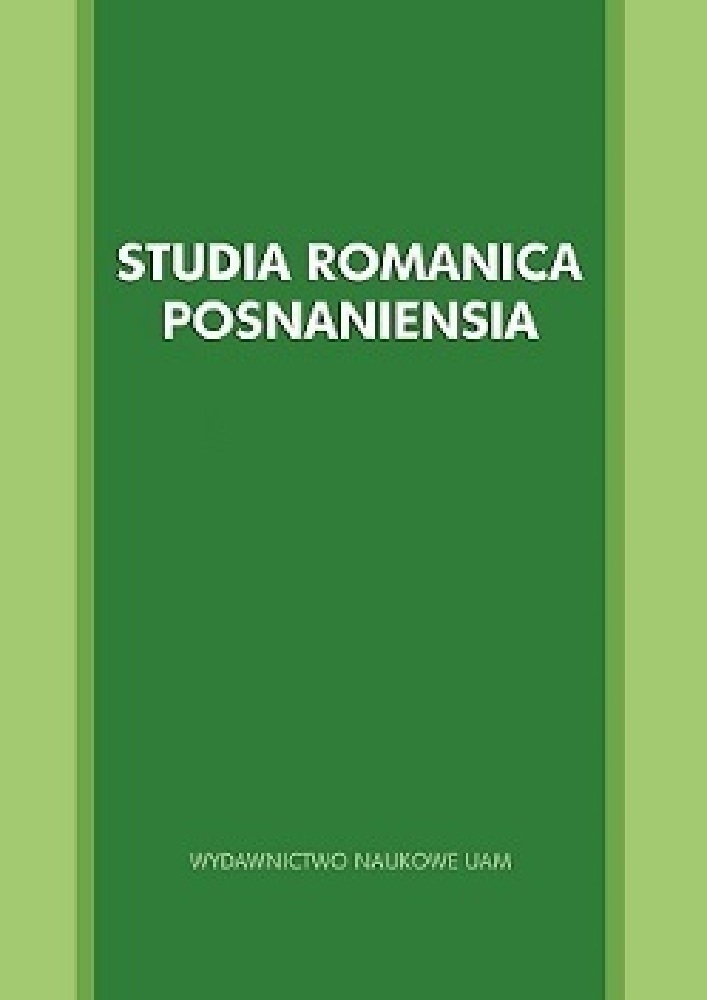Abstrakt
This study explores the presence of community interpreters in lifelong learning contexts where adult learners engage in international education. It aims to uncover how adult learners perceive interpreters’ roles in educational settings through an online questionnaire. The research identifies interpreter roles, using Tryuk’s (2004) framework for community interpretation. It finds similarities between educational and community interpretation settings. Participants emphasize interpreters’ vital role in facilitating international education, ensuring accessibility, and reducing language-related stress. However, some note that interpreters can unintentionally introduce stress, especially without professional competence. Overall, this study provides pilot insights into adult learners’ perceptions of interpreters in educational contexts, revealing the complex dynamics of interpretation in international education.
Bibliografia
Angelelli, C.V. (2004). Revisiting the Interpreter’s Role: A Study of Conference, Court, and Medical Interpreters in Canada, Mexico, and the United States. Amsterdam : John Benjamins Publishing. DOI: https://doi.org/10.1075/btl.55
Berk-Seligson, S. (2002). The Bilingual Courtroom: Court Interpreters in the Judicial Process. Chicago : University of Chicago Press. DOI: https://doi.org/10.7208/chicago/9780226923277.001.0001
Biagini, M., Boyd, M.S. & Monacelli, C. (2017). The Changing Role of the Interpreter Contextualising Norms, Ethics and Quality Standards. New York & London: Routledge Taylor & Francis Group. DOI: https://doi.org/10.4324/9781315621531
Gile, D. (1995). Basic Concepts and Models for Interpreter and Translator Training. Amsterdam : Benjamins Translation Library. DOI: https://doi.org/10.1075/btl.8(1st)
Goguikian Ratcliff, B., Suardi, F. (2006). L’interprète dans une consultation thérapeutique : conceptions de son rôle et difficultés éprouvée. In Psychothérapies, 1, 26, 37-49. DOI: https://doi.org/10.3917/psys.061.0037
Hale, S.B. (2007). Community Interpreting. Basingstoke : Palgrave Macmillan. DOI: https://doi.org/10.1057/9780230593442
Kopczyński, A. (1994). Quality in conference interpreting: Some pragmatic problems. In S. Lambert & B. Moser-Mercer (éds.), Bridging the gap. Empirical Research in simultaneous interpretation (pp. 87-100). Amsterdam-Philadelphia : John Benjamins Publishing. DOI: https://doi.org/10.1075/btl.3.09kop
Kurz, I. (1993). Conference Interpretation: Expectations of different user groups. The Interpreter’s Newsletter, 5, 13-21.
Mikkelson, H. (2000). Introduction to Court Interpreting. Abingdon, Oxon : St. Jerome Publishing.
Pöchhacker, F. (2004). Introducing Interpreting Studies. New York : Routledge. DOI: https://doi.org/10.4324/9780203504802
Pöchhacker, F. (2013). Researching quality: a two-pronged approach. In O. García Becerra, E. Macarena Pradas Macías & R. Barranco-Droege (éds.), Quality in interpreting: Widening the scope, t. 1, (pp. 33-56). Granada : Comares.
Setton, R. (1999). Simultaneous Interpretation: A Cognitive-Pragmatic Analysis. Amsterdam : Benjamins Translation Library. DOI: https://doi.org/10.1075/btl.28
Tryuk, M. (2004). L’interprétation communautaire. Des normes et des rôles dans l’interprétation. Warszawa : Wydawnictwo Tepis Polskiego Towarzystwa Tłumaczy Ekonomicznych, Prawniczych i Sądowych.
Tryuk, M. (éd.) (2010). O tłumaczach, prawnikach, lekarzach i urzędnikach. Teoria i praktyka tłumaczenia środowiskowego w Polsce. Warszawa : BEL Studio Sp. z o.o., Wydział Lingwistyki Stosowanej UW.
Wadensjö, C. (1998). Interpreting as Interaction. London : Routledge.
Licencja
Prawa autorskie (c) 2024 Justyna Woroch

Utwór dostępny jest na licencji Creative Commons Uznanie autorstwa – Użycie niekomercyjne – Na tych samych warunkach 4.0 Międzynarodowe.
- Autor oświadcza, że przysługują mu osobiste i majątkowe prawa autorskie do Utworu oraz że nie są one ograniczone w zakresie objętym niniejszą Umową, oraz że utwór jest dziełem oryginalnym i nie narusza majątkowych lub osobistych praw autorskich innych osób.
- Autor udziela Uniwersytetowi im. Adama Mickiewicza w Poznaniu niewyłącznej i nieodpłatnej licencji na korzystanie z Utworu bez ograniczeń terytorialnych i przez czas nieokreślony na następujących polach eksploatacji:
2.1. wytwarzanie określoną techniką egzemplarzy Utworu, w tym techniką drukarską, reprograficzną, zapisu magnetycznego oraz techniką cyfrową;
2.2. wprowadzanie do obrotu, użyczenie lub najem oryginału albo egzemplarzy Utworu;
2.3. publiczne wykonanie, wystawienie, wyświetlenie, odtworzenie oraz nadawanie i reemitowanie, a także publiczne udostępnianie Utworu w taki sposób, aby każdy mógł mieć do niego dostęp w miejscu i w czasie przez siebie wybranym;
2.4. włączenie Utworu w skład utworu zbiorowego;
2.5. wprowadzanie Utworu w postacie elektronicznej na platformy elektroniczne lub inne wprowadzanie Utworu w postaci elektronicznej do Internetu, Intranetu, Extranetu lub innej sieci;
2.6. rozpowszechnianie Utworu w postaci elektronicznej w Internecie, Intranecie, Extranetu lub innej sieci, w pracy zbiorowej jak również samodzielnie;
2.7. udostępnianie Utworu w wersji elektronicznej w taki sposób, by każdy mógł mieć do niego dostęp w miejscu i w czasie przez siebie wybranym, w szczególności za pośrednictwem Internetu, Intranetu, Extranetu lin innej sieci;
2.8. udostępnianie Utworu zgodnie z wzorcem licencji Attribution-NonCommercial-ShareAlike 4.0 International (CC BY-NC-SA 4.0) lub innej wersji językowej tej licencji lub którejkolwiek późniejszej wersji tej licencji, opublikowanej przez organizację Creative Commons. - Autor zezwala Uniwersytetowi im. Adama Mickiewicza w Poznaniu na:
3.1. nieodpłatne korzystanie i rozporządzanie prawami do opracowań Utworu i tymi opracowaniami.
3.2. wysyłanie metadanych Utworu oraz Utworu do komercyjnych i niekomercyjnych baz danych indeksujących czasopisma. - Autor upoważnia i zobowiązuje Uniwersytet im. Adama Mickiewicza w Poznaniu do udzielania osobom trzecim dalszych licencji (sublicencji) do Utworu oraz do innych materiałów, w tym utworów zależnych lub opracowań zawierających lub powstałych w oparciu o Utwór, przy czym postanowienia takich sublicencji będą tożsame z wzorcem licencji Attribution-NonCommercial-ShareAlike 4.0 International (CC BY-NC-SA 4.0) lub innej wersji językowej tej licencji lub którejkolwiek późniejszej wersji tej licencji, opublikowanej przez organizację Creative Commons Tym samym uprawnia wszystkich zainteresowanych do korzystania z utworu wyłącznie w celach niekomercyjnych pod następującymi warunkami:
4.1. uznanie autorstwa czyli obowiązek podania wraz z rozpowszechnionym utworem informacji, o autorstwie tytule, źródle (odnośniki do oryginalnego utworu, doi) oraz samej licencji;
4.2. na tych samych warunkach, wolno rozpowszechniać utwory zależne jedynie na licencji identycznej to tej, na jakiej udostępniono utwór oryginalny. - Uniwersytet im. Adama Mickiewicza w Poznaniu jest zobowiązany do:
5.1. udostępniania Utworu w taki sposób, aby każdy mógł mieć do niego dostęp w miejscu i w czasie przez siebie wybranym bez ograniczeń technicznych;
5.2. poprawnego informowania osób, którym Utwór będzie udostępniany o udzielonych im sublicencjach w sposób umożliwiający odbiorcom zapoznanie się z nimi.
Pozostałe postanowienia
- Uniwersytet im. Adama Mickiewicza w Poznaniu zachowuje prawo do czasopisma jako całości (układ, forma graficzna, tytuł, projekt okładki, logo itp.).

